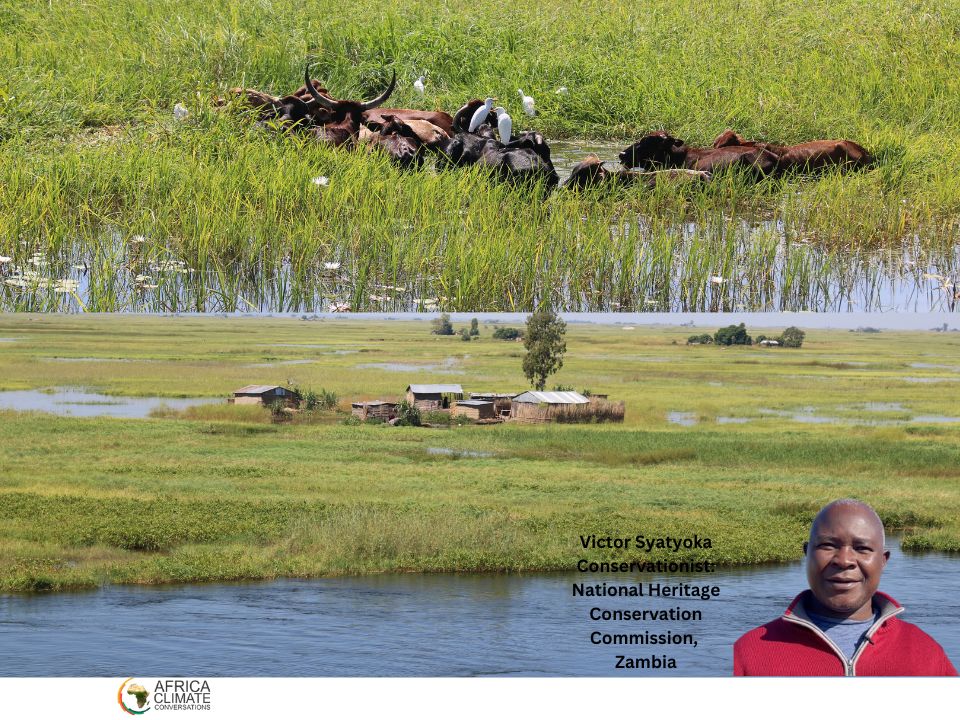
Learn how a Kenyan indigenous women’s club assisted in the preservation of a community swamp.
When the Lozi people moved to the Barotse Floodplains in western Zambia around 400 years ago, they heaped soil on platforms and settled without harming the floodplain. According to Victor Syatyoka, a conservationist from Zambia’s National Heritage Conservation Commission, the Barotseland people used African eco-spiritualism to thrive on the floodplain. The Lozi people recognised their stewardship role by communally cleaning canals used to access villages and farmlands and instilling African cultural and spiritual beliefs that have been used to protect the fish, water, animals, lagoons, and biodiversity within the floodplains as well as the forests on higher ground they migrate to annually when the floodplains flood. Syatyoka expands on this cultural and spiritual conservation practice and its importance in preserving the Barotse floodplains in this episode.
